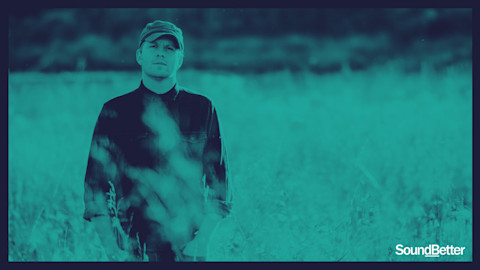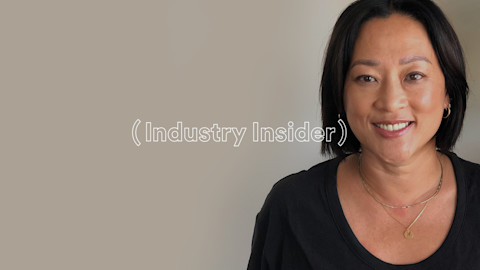This Atlanta label brought us DRAM and 6LACK and this is how they came to be.
When they decided to start an artist management company in 2012, Sean “Famoso” McNichol, Tunde Balogun, Junia Abaidoo, Justice Baiden, and Carlon Ramong say they were just winging it. The five first got to know each other as students at Georgia State University and Kennesaw State, where they earned reputations as party promoters and DJs. LVRN (“Love Renaissance,” abbreviated) was born when they decided to turn their passion projects of throwing parties and working with local artists into a functioning company based in Atlanta. The crew say they were inspired to champion “love” as a story they felt was missing from popular music and culture. Seven years later, LVRN Records + Management is the Interscope-backed company behind chart-topping acts like 6LACK, DRAM, Boogie, and R&B newcomer Summer Walker, and a cultural force with a family-style approach to business. Here, the label’s cofounders share the story of LVRN—one of high risk, ingenuity, and a commitment to independence.
The beginnings
Before signing their first act in 2013, singer-rapper Raury, the founders of LVRN were building artist development skills and music industry know-how behind the scenes. McNichol and Balogun, who’ve known each other since high school, managed local Atlanta producer duo FKi and interned at Ludacris’ Disturbing tha Peace, eventually running the label’s publishing arm. Baiden, Ramong, and Abaidoo worked as sales associates in the women’s shoes department at Nordstrom in order to make ends meet while developing other local acts.
“We all had to have jobs in the beginning because that’s how we subsidized our creative efforts and the stuff we wanted to do,” Abaidoo explains. Balogun adds, “We were the kind to just sit back, learn, observe, and when we didn’t know something we would just ask questions or we would go figure it out. That’s the type of attributes [that] managers have to have—a ‘figure it out’ mentality. We don’t take ‘no’ for an answer. That’s always been in our blood.”
LVRN's Tunde Balogun, Carlon Ramong, Justice Baiden, Junia Abaidoo, and Sean Famoso McNichol, Photo by Zhamak F
The growing pains
LVRN’s figure-it-out mentality extended itself especially well to the company’s lack of funding early on. “When you have little to no money to do things, you actually end up getting the most creative,” says McNichol. With an artist on the roster and no budget to work with, LVRN was forced to think outside the box when it came to marketing. “It starts as early as the Anti-Tour, which is when we had Raury pop up at other people’s shows with a U-Haul truck and a band, playing for fans off a generator,” McNichol remembers. “We always say that at the core of any great idea, [the concept is] free. Money should only magnify it. From inception, it’s been a very creative-based company when it comes to the marketing and stuff that we all love to pull off.”
As the company grew and signed more acts, the team realized they needed to define workflow and specialize. Abaidoo explains, “Sean, naturally having good ideas, took on branding and marketing. Justice, naturally being a person that helps the artist make the actual music, took on A&R. Tunde, naturally being the person that is the direct point of contact between the artist and the labels and the managerial type of tasks, took on lead management. Me, understanding budgets and things of that nature, I took on operations. And then Carlon, being an illustrator and just all-around creative in a lot of ways, took on creative direction.”
While all five of LVRN’s cofounders consider the company itself—and the decisions that came with founding it, such as dropping out of college, quitting jobs, and defying parents—to be one big risk, McNichol comments that their approach to company culture is also risky in terms of the way they invest themselves personally. “We are a very family-style company, artists included,” he says. “[It’s a] very personal, hands-on approach. The risk we inherently take with that is [we] care about these people on a deeper level than just a typical client relationship. [We] feel a personal responsibility to make sure they’re straight financially, emotionally, all that,” he adds, noting the tough and at-times fickle nature of the music industry.
The expansion
After successfully launching both Raury and “Broccoli” singer DRAM’s career, the guys behind LVRN felt confident about both their understanding of how the industry works and their ability to subvert tradition and innovate within it. With each artist, they developed relationships with executives of major labels (Raury signed to Columbia and DRAM signed to Atlantic). “You start to become friends with everybody, or at least acquaintances, so there’s a mutual respect you have for them,” McNichol says. Though they didn’t go with Interscope, who had repeatedly expressed interest in both artists, they maintained a relationship with the label that would bear fruit in the way LVRN looks today.
When LVRN signed 6LACK and the company finally had some money in the bank, they were able to leverage more and move independently. They turned down dinners and flights to meetings with labels, motivated to find 6LACK mainstream success on their own, until Interscope approached them with an offer they couldn’t refuse. Today, LVRN’s joint venture with Interscope is a mutually beneficial partnership that allows the imprint to maintain the independent mindset they pride themselves on.
Interscope’s investment helped LVRN open their Atlanta headquarters, which serves as the hub of the company’s management, creative direction, and production services, and initiated the launch of LVRN Records. “We have all the resources that we need to get things that we want to do done at the time and pace that we want to get it done, and have a partner to help amplify our efforts,” McNichol says of the venture. “Having everything you need to be able to activate your independence is really important.”
DRAM, Photo by Asato Iida
The future
LVRN’s latest signee, Summer Walker, released her debut album in October of last year and landed her first Billboard Hot 100 single in February when her “Girls Need Love” remix with Drake debuted at No. 87. With a strong foothold in the music industry, LVRN has its sights set on strengthening the brand by expanding to creative projects outside of music. “There’s a lot of value that we know we can add to different efforts that have nothing to do with music, so I think that’s something that we’re definitely looking forward to doing more of,” says Abaidoo.
Keeping things close to home will remain a significant part of the way LVRN drives the business moving forward. “We’re establishing a real base in Atlanta [so that] all of our talent that manifests here doesn’t have to go other places to get to the next step,” Ramong says. With a personal connection to the artists they serve in Atlanta and an all-in-one HQ, LVRN is equipped to maintain the culture it established while it broadens its horizons as a company.
—Khalila Douze
Popular Stories
video
How Julia Wolf Made It




